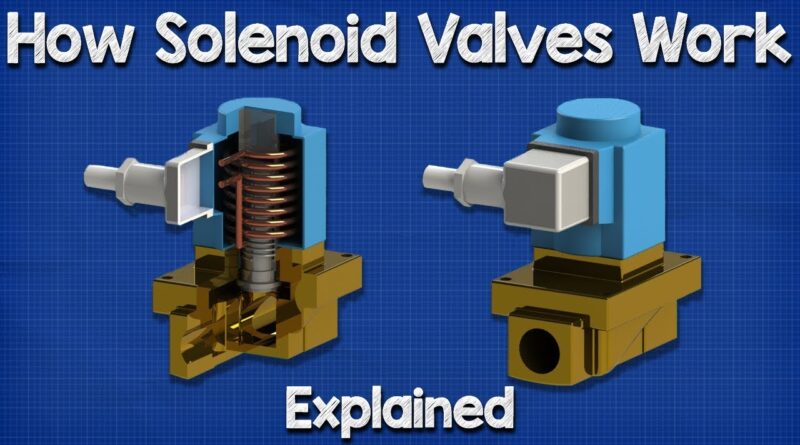The Benefits of Using Solenoid Valves in Industrial Automation
Industrial automation has become an integral part of modern manufacturing processes. Automated systems’ efficient operation relies on various components, including faucets. These valves play a critical role in regulating the flow of fluids and gases in various industrial applications. This article will discuss the benefits of industrial automation devices such as solenoid valves.
Here are the top benefits you should know about:
Reliability
Solenoid valves are known for their high reliability. They are designed to operate under harsh industrial conditions and can handle high-pressure and high-temperature fluids and gases. They are made with durable materials like stainless steel or brass that resist corrosion and wear. This means they have a longer lifespan and require less maintenance than other valves. They can also be easily integrated into existing industrial automation systems, making them a cost-effective solution for upgrading or retrofitting equipment. Their precise and reliable control over fluid and gas flow also helps to improve product quality and consistency.
Fast and Accurate Control
These devices offer fast and accurate control over fluid and gas flow. They can be operated electronically, allowing for precise control over the amount and timing of the flow. They can open and close quickly, which is critical for applications that require rapid response times. This makes them ideal for automated systems requiring precise and reliable control. The fast response times can help minimise waste and reduce production time, increasing productivity and profitability. Their ability to operate with high accuracy also makes them suitable for use in industries such as medical, food and beverage, and automotive.
Energy Efficiency
These fluid-control systems are energy-efficient, a critical factor in industrial automation. They consume very little power to operate, making them an ideal choice for applications where energy efficiency is a concern. This is particularly important in large-scale automated systems where energy consumption can significantly impact operating costs. Valves offer a low-cost alternative to other valves, such as pneumatic ones. This can help reduce the automated system’s cost and make it more accessible to smaller businesses or those with limited budgets.
Versatility
These valves are versatile and can be used in various industrial applications. They are obtainable in multiple sizes, materials, and configurations, making them suitable for many systems. Valves can control the flow of liquids, gases, and even steam. They are also ideal for high-pressure and high-temperature applications, making them versatile for industrial automation. They can be used in diverse industrial applications, such as packaging, food processing, water treatment, and oil and gas. Their versatility also extends to their ability to operate in various temperatures, making them suitable for use in hot and cold environments.
Safety
Such electromechanical devices are an essential safety feature in many industrial applications. They are designed to be fail-safe, meaning they will automatically shut off in case of a power failure or other malfunction. This can help prevent accidents and ensure that the system operates safely. These valves are also designed to be easy to install and maintain, enhancing their safety and reliability. The safety features of valves make them an essential component in applications where the risk of leakage or contamination is high. Additionally, their ease of installation and maintenance means they can be quickly and easily replaced, further enhancing their safety and reliability.
Conclusion
In conclusion, solenoid valves are an essential component of industrial automation systems. They offer a range of benefits, including reliability, fast and accurate control, energy efficiency, versatility, and safety. With their durable construction and ability to operate under harsh conditions, such valves are ideal for various industrial applications. Manufacturers can improve efficiency, reduce operating costs, and ensure safe and reliable operation by using them in automated systems.




